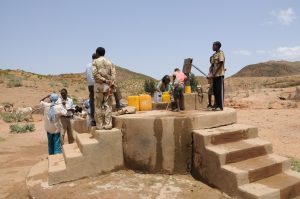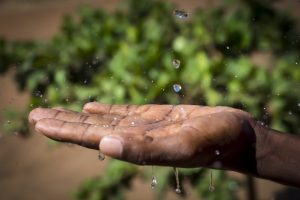A commitment to sustainability
FENS is dedicated to minimising the environmental impact of its events and firmly believes that we all have a part to play in preserving our future for generations to come, both locally and across the globe. As such, we are planning our events with sustainability in mind, for everyone involved with the Forum: from the organising team and committees, through our partners, all the way to the delegates we welcome.
How you can contribute as a FENS Forum participant
FENS is taking steps to reduce the Forum’s environmental impact. Here are a few ideas of how you can contribute:
- Offset the carbon emissions from your trip to Paris and support a project with social value (learn more ). All delegates who have offset can claim a public transport card at Registration (9 July) or at the FENS booth (10-13 July). Please note this works on a first-come, first-served basis.
- Use more sustainable ways of travelling to and around Paris (visit the RATP website for information about public transport and the Velib website to find a city bike)
- Use the mobile app and the Forum website to inquire about the programme details
- Reduce the waste you generate and separate disposal
- Opt for a reusable mug or water bottle (you can purchase a bottle when registering to the Forum or directly at the venue)
You can also join the Sustainable European Laboratories (SELs) network, supported by FENS, which acts to lead scientific research towards more sustainable practices.
How FENS is minimising the Forum environmental impact
FENS is dedicated to minimising the environmental impact of its events and firmly believes that we all have a part to play in preserving our future for generations to come, both locally and across the globe. FENS is convinced of the central value that comes from bringing researchers from a broad range of neuroscientific disciplines together every second year to discuss and advance their research agendas.
Reduced printing
We are limiting printed promotional materials for the FENS Forum at other events and those from other events at the Forum. We encourage digital alternatives instead (Forum app and website). We encourage all our exhibitors to join us in this initiative and reduce single-use giveaways at their stands.
Optimising energy and water consumption
We apply a strict policy when selecting suppliers and invite them to follow sustainable practices. Kenes, the Forum Professional Conference Organiser, is part of the IAPCO Plastics Pledge to rid the meetings industry of single-use plastic. We will limit to a minimum the use of non-recyclable plastic from the entire Forum, delegates are invited to use reusable water bottles or mugs.
Sustainable catering
All food and beverage utensils will be reusable or compostable. We will donate any surplus food that meets the suitable requirements to non-profit associations in the surrounding area.
FENS has therefore devised a strategy for more sustainable meetings to enable our delegates to meet with a reduced environmental impact on the environment. This strategy is trifold:
Offset Your carbon emissions
As a participant of the FENS Forum 2022, you can choose to offset the CO2 emissions generated during your trip.
You can either do so when you register or at a later stage: go back to your registration account and edit your registration to allow offsetting. So far, only 35% of delegates have chosen to offset their travel.
By choosing to offset your trip or your whole stay in Paris, you will support the following projects:
-
Water borehole project in Eritrea
In Eritrea, over 45 % of the rural population lacks access to safe water and relies exclusively on unprotected wells, lakes and other open water sources that are highly susceptible to contamination. The only option to purify this water is by boiling it using firewood and charcoal – which results in deforestation and the release of greenhouse gas emissions from the combustion of wood.
This project consists of repairing damaged wells as well as drilling new ones, which provide clean water that can be accessed through a borehole. To make sure it is safe for consumption, the water is regularly tested beforehand.
Impacts:
- By providing safe water, this project ensures that households consume less firewood to purify water and thereby greenhouse gas emissions. In 1 year, 1 well will support 770 people; provide 2.1 million litres of clean water; save 24,740 trees; and reduce CO2 emissions by 1,667 tonnes.
- By conserving 884 hectares of forest, this project avoids a total of 30 000 tonnes of CO₂ and saves 445,000 trees. By reducing deforestation, this project also helps protect the ecological services of Eritrea’s forests, which include protection against erosion, landslides and floods, and the preservation of biodiversity.
- And besides the environmental benefits, the project also has an important impact on health and livelihoods; women, who currently take charge of a majority of household tasks, are benefiting the most from the positive impacts of the project.
A project developed by UK project developer CO2Balance in partnership with local NGOs to fix broken water hand pumps. Click here to view the video.

-
Water borehole project in Malawi
This innovative project in the Dowa and Kasungu Districts aims to rehabilitate damaged boreholes so that communities no longer have to drink dirty water from unprotected sources, or boil their water from firewood logged from nearby forests.
The lack of safe water keeps the world’s poorest people in poverty, and women and girls are the most affected, with significant hours spent carrying contaminated water. This project aims to reach around 450,000 people across the two districts, which remain among the least served in Malawi, with water supply coverage estimated at 41% and 61% respectively. The carbon revenues from this project are allocated to implement a maintenance programme, ensuring that the boreholes stay functioning for the lifetime of the project.
Impacts:
- This project reduces carbon emissions by 20,000 tonnes every year
- It reduces the use of non-renewable forest biomass, assists with the preservation of the existing forest, and promotes biodiversity
- It reduces the number of indoor pollutants, including carbon dioxide (CO2) and carbon monoxide (CO) emitted from the burning of biomass within residences, which reduces the likelihood of respiratory diseases and improves household health outcomes.
The project is developed by UK project developer CO2Balance in partnership with local NGOs.
